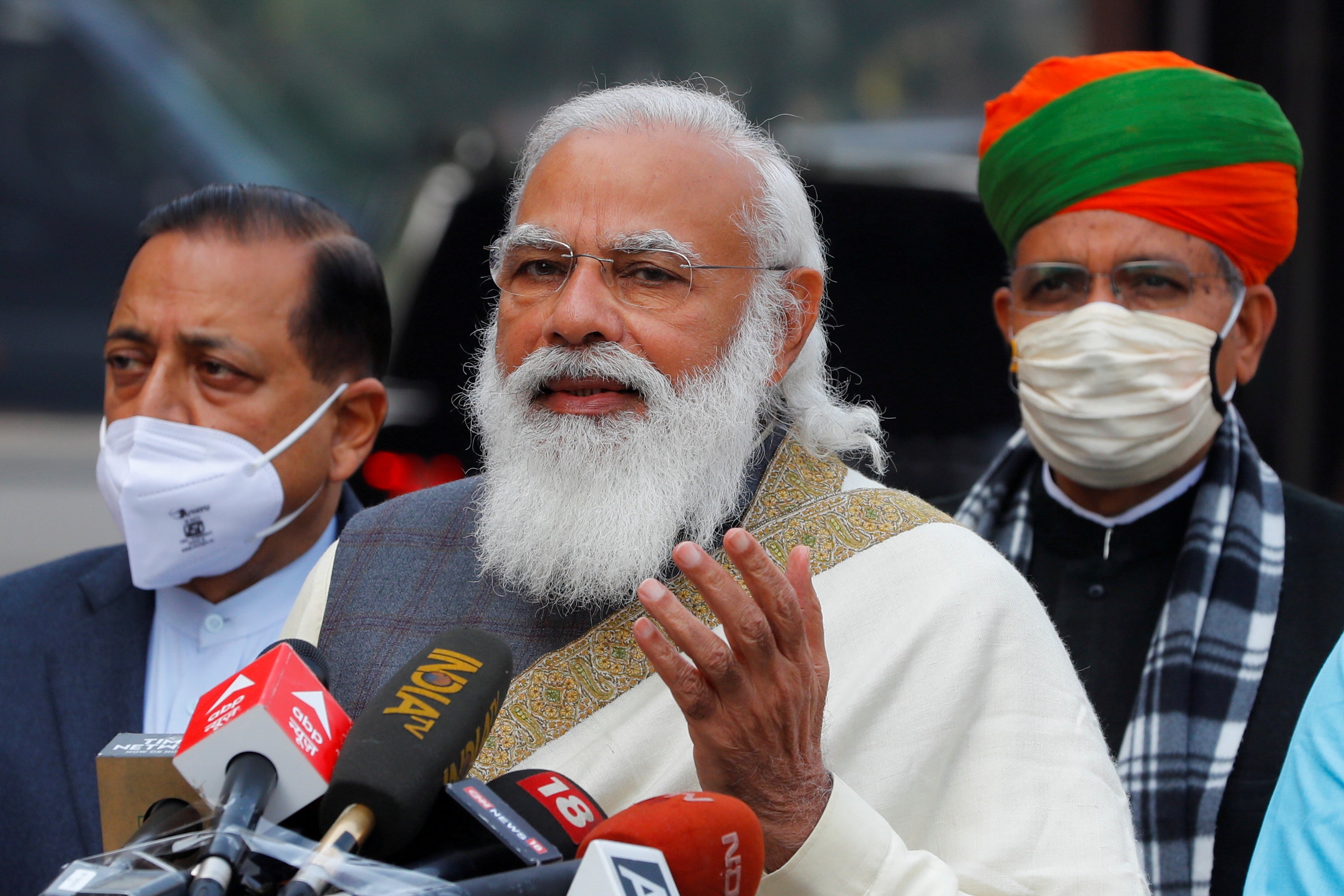India Covid: Modi offers free vaccines to all adults in his first national address since start of second wave
In his live address, Modi changed country’s vaccine policy, and also criticised parts ofthe media, reports Shweta Sharma

Indian prime minister Narendra Modi has announced free vaccinations would be provided to all the adults in the country, in his first public appearance since the start of devastating second wave of coronavirus.
Mr Modi on Monday announced that the central government would take full control of the vaccination drive and free vaccines would be given to all those over 18 from 21 June while prices will be capped at private hospitals.
"The centre is taking back total control of vaccination now. It will be implemented in next two weeks,” he said as he defended the government’s vaccination policy.
The major announcement came after the Indian prime minister was criticised for not being present during the catastrophic second wave, during which people faced unprecedented challenges of shortage of oxygen, hospitals beds and medicines.
It was the first time he had spoken to the nation since April.
While he held virtual meetings with the heads of the states, Monday was Mr Modi’s first address to the Indian people after a long silence.
It also came as the South Asian nation faced the challenges of vaccinating its large adult population when several states ran out of vaccine stock during the height of the second wave and uproar over inflated prices of vaccinations at private hospitals.
Mr Modi appeared to be shifting blame for the slow vaccination drive on states, saying questions were raised at central government and it was said “one size does not fit all” in support of de-centralising the process.
He said demands were raised by state governments to allow them to procure vaccines directly as several states complained of shortage before it was de-centralised.
He added that “a section of the country’s media ran” a campaign against the government.
“In May after two weeks, most State Governments came back and said, the earlier system was better and worked better,” Mr Modi said announcing to take control of the drive.
While the vaccination would be provided free of cost to state governments, 25 per cent of vaccines have been allocated to the private sector. But the service charge has been capped at Rs 150 (£1.45) which would be applicable over the cost of vaccine at private hospitals.
This means that the government will procure 75 per cent of the stocks from manufacturers and would allocate to states while 25 per cent could be purchase by private hospitals to be sold for those willing to take the jab in a private facility.
Last week, the Supreme Court called out central government and flagged "various flaws" in the inoculation drive, raising questions over differential pricing, shortage of doses, and lack of access to people in rural areas of the country.
The court raised questions on price bias by manufacturers and asked why states had to pay more for the vaccines than the centre.
Mr Modi hailed the speed of vaccination drive which experts, however, say is slow. India has administrated 232 million doses since the beginning drive, which began on 16 January. A total of 3.4 per cent are now fully immunized. Almost 350,000 people have died of the virus in India.
At this pace, India will take another 22 months or almost two years to cover 75 per cent of the population, according to Bloomberg’s dashboard.
Mr Modi and his administration were heavily criticised for the handling of the second wave as the infections surged at the fastest pace in the world. The surge was largely blamed on election rallies and approval of religious gathering in the country amid the emergence of a fast-spreading variant.
His popularity took a sharp tumble from 75 per cent in 2019 to 51 per cent this year, according to Local Circle polling company.
Join our commenting forum
Join thought-provoking conversations, follow other Independent readers and see their replies
Comments